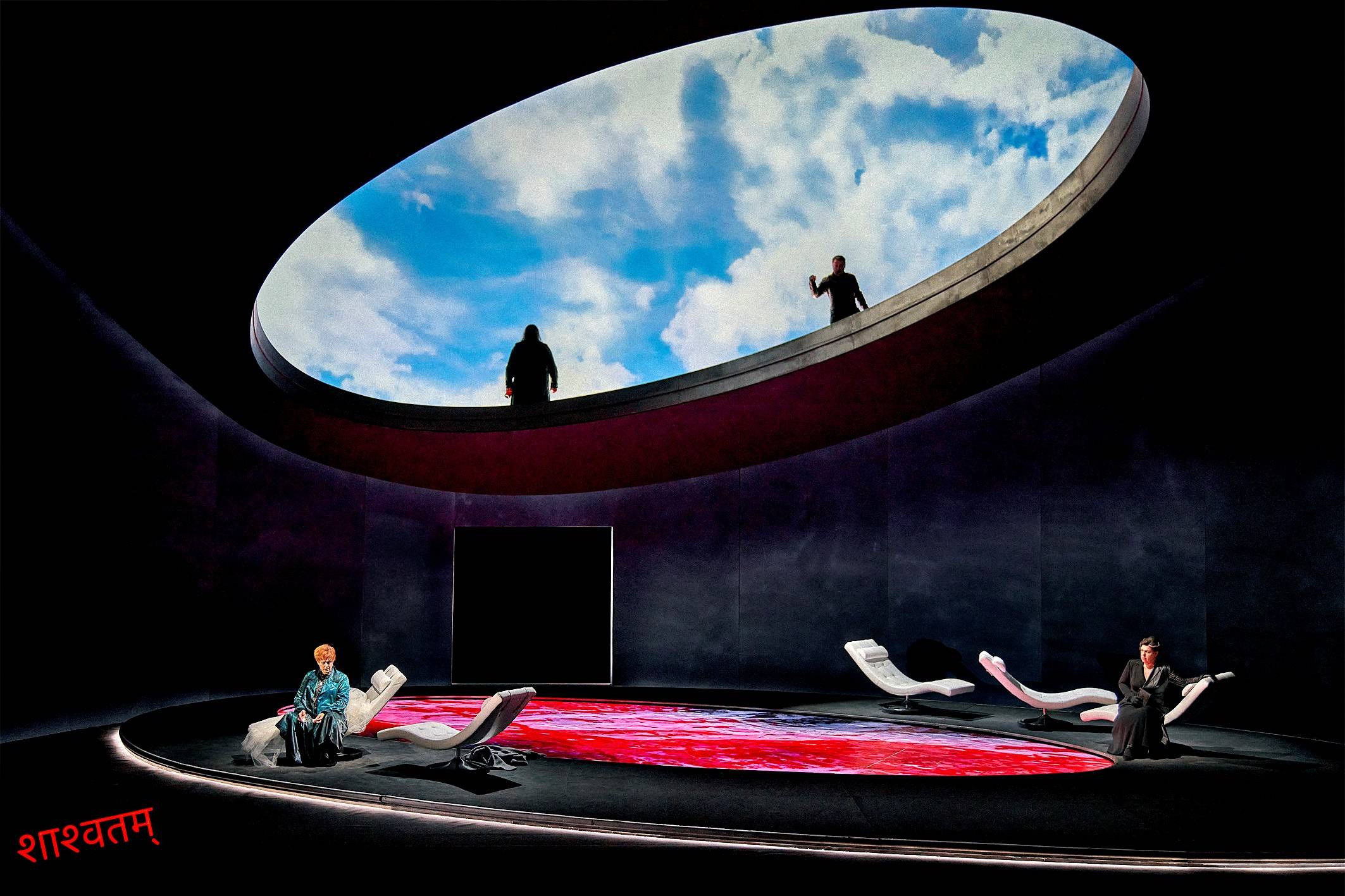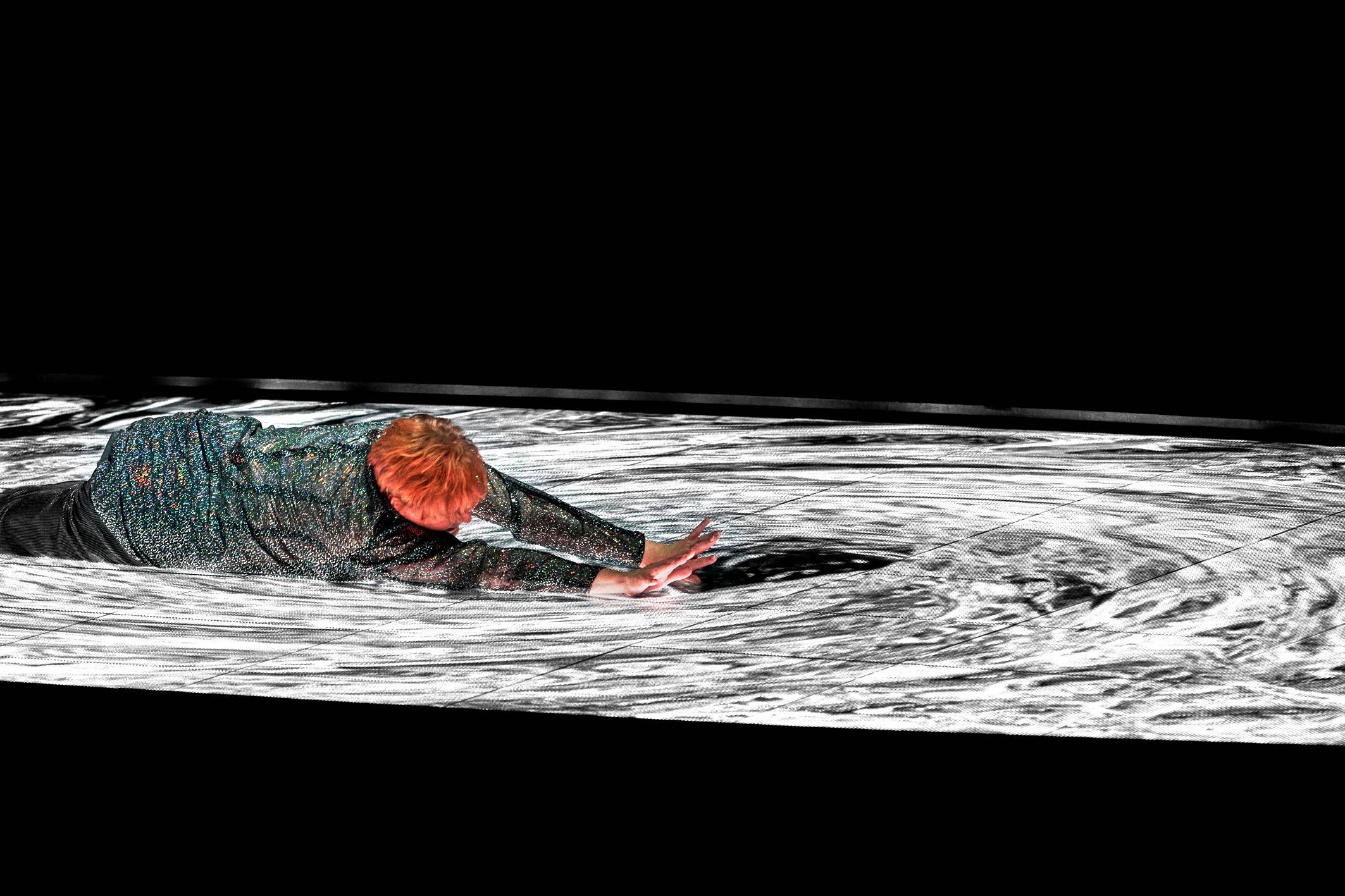
Tristan und Isolde - Opera in Three Acts by Richard Wagner (Based on the Production of the Bayreuth Festival 2022)
Venue:
Shanghai Grand Theatre Lyric Theatre
300 Renmin Da Dao, near Huangpi Bei Lu Huangpu Shanghai
Date:
7/4/2025 - 7/6/2025
Choose Session:
Choose Price:

Tristan und Isolde - Opera in Three Acts by Richard Wagner (Based on the Production of the Bayreuth Festival 2022)
7/4/2025 - 7/6/2025
Shanghai Grand Theatre Lyric Theatre
300 Renmin Da Dao, near Huangpi Bei Lu Huangpu Shanghai
¥180 - ¥1152
Event details
👉 Entering with the ticket code which you received via SMS to your phone starting with [上海大剧院]
👉 Children under 1.2m are not allowed to enter
👉 Each attendee requires a ticket
👉 No cancellation
👉 Children under 1.2m are not allowed to enter
👉 Each attendee requires a ticket
👉 No cancellation
Tristan und Isolde, an opera in three acts by Richard Wagner, was created between 1857 and 1859 and premiered in Munich in 1865. It marks the maturity of Wagner's style. With its unique integration of harmony, melody and drama, it has ushered in a new era in music and has had a profound impact on the development of music in later generations. The story goes that Tristan, the nephew of King Marke of Cornwall, was tasked with escorting Princess Isolde of Ireland to marry the king. On the way, the two accidentally drank a love potion and fell in love, and their story finally ended in tragedy.
On December 2024, witnessed by Ms. Katharina Wagner, the great-granddaughter of Richard Wagner and the artistic director of the Bayreuth Festival, the Bayreuth Festival, one of the world's top music festivals, announced its first entry into China and landed in Shanghai, launching the "Bayreuth in Shanghai" three-year opera project. From 2025 to 2027, three major Wagner operas will come to Shanghai one after another. Among them, the 2022 version of the opera Tristan und Isolde from Bayreuth will be the first in the three-year opera project and will make its debut at the Shanghai Grand Theatre from July 4th to 6th, 2025. This is also the premiere of this most representative opera by Wagner in Shanghai.
This version is directed by Roland Schwab, incorporating a simple and modern stage design, using projection technology, with the stage set in a huge oval room, enabling the audience to feel as if they are in a utopia of love and experience a unique artistic experience.

© Bayreuth Festival / Enrico Nawrath
About the Performance
Tristan und Isolde is the ultimate work about love. No opera, no play, no film has ever been so consistent—indeed, so radical—in this regard. In a challenging way termed a "dramatic action" by Wagner, it unfolds fewer actions than reflections on devotion and vengeance, day and night, world-denial and transcendence.
Richard Wagner's music for Tristan und Isolde is the most bewitching negation of life ever created. How can a stage correspond to this unique music—which, like no other, dissolves boundaries? Boundaries between you and me, between life and death? How can a scene correspond to music that transports us through chromatic hypnosis into the boundless universe, even into the boundless universe of our own soul? Until all language, all being and striving, become pure sound? Our response must be equally radical as this work: The music itself, sound itself, is the primary concept. For us, there is no more important theme. Nothing else needs to be staging! What we wish to create for Bayreuth is a yearning Adagio of the Night—full of seduction, full of enchantment that toward the beyond. A nocturnal excess of escapist stands in absolute defiance of all contemporary "daytime phantoms"... "Grant oblivion, that I may cease... release me from the world!"
Knowledge Consultant: Kang Xiao, Professor at the China Conservatory of Music and Doctoral Supervisor.
German-Chinese and German-English Translator: Yao Yuan, undergraduate student from the German Department of East China Normal University.
 © Bayreuth Festival / Enrico Nawrath
© Bayreuth Festival / Enrico NawrathComposer & Librettist: Richard Wagner
Conductor: Xu Zhong
Director: Roland Schwab
Executive Director: Dirk Girschik
Set Designer: Piero Vinciguerra
Costume Designer: Gabriele Rupprecht
Vocal Coach: Alessandro Amoretti
Director: Roland Schwab
Executive Director: Dirk Girschik
Set Designer: Piero Vinciguerra
Costume Designer: Gabriele Rupprecht
Vocal Coach: Alessandro Amoretti
Tristan : Erin Caves, Corby Welch
Isolde : Lise Lindstrom, Song Qian
Marke : Egils Silins, Yu Yang
Kurwenal : Kay Stiefermann
Melot : Yu Haolei
Brangäne : Bettina Ranch, Wang Xiaoxi
Ein Hirt : Zheng Yao
Ein Steuermann : Tao Kuo
Chorus : Shanghai Opera House Chorus
Orchestra : Shanghai Opera House Orchestra
Co-presented by Shanghai Opera House and Shanghai Grand Theatre
Produced by the Shanghai Opera House
Notice
Date:
Friday, 4th Jul. - Saturday, 5th Jul. @ 19:00
Sunday, 6th Jul. @ 14:00
Price: 180/280/380/480/680/880/1080/1280
Duration: c. 270 minutes (incl. two intervals)

Follow our WeChat for event news, deals, gossip and more!
Book Now
Tristan und Isolde - Opera in Three Acts by Richard Wagner (Based on the Production of the Bayreuth Festival 2022)
Venue:
Shanghai Grand Theatre Lyric Theatre
300 Renmin Da Dao, near Huangpi Bei Lu Huangpu Shanghai
Date:
7/4/2025 - 7/6/2025
Choose Session:
Choose Price:
© 247tickets 2020 沪ICP备19024898号-2

 Add us on WeChat to speak to our friendly customer service team! ID: Tickets247Tickets
Add us on WeChat to speak to our friendly customer service team! ID: Tickets247Tickets